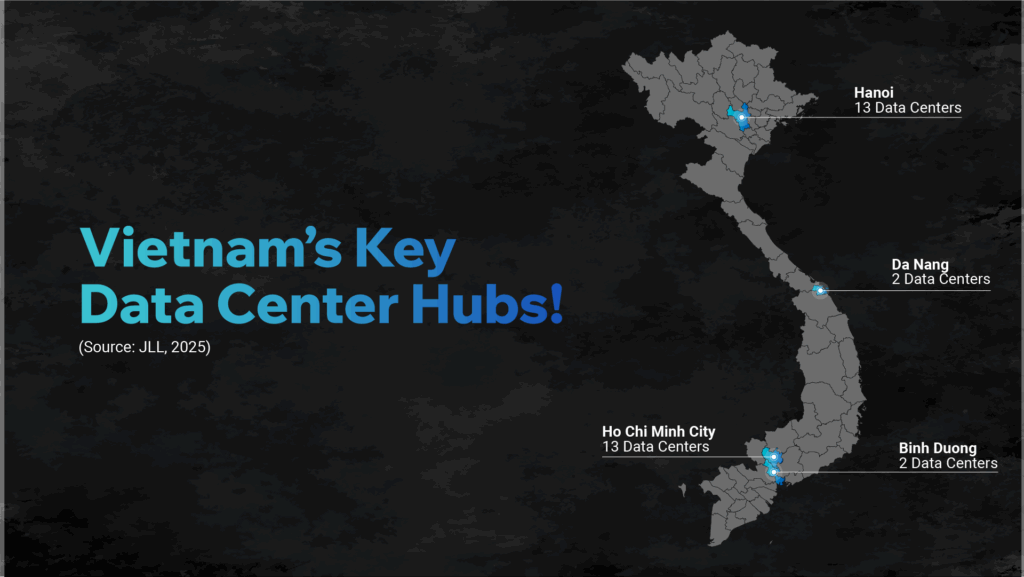
You know Vietnam for its rich coffee, mouth-watering pho, and breathtaking landscapes. but there’s a digital revolution brewing right behind those café windows. In the last few years, Vietnam has quietly emerged as one of Southeast Asia’s most dynamic digital economies. And behind this explosive online growth lies a rising star in the infrastructure world: data centers.
Vietnam’s Growing Data Center Ecosystem
Today, Vietnam’s data center landscape is largely dominated by its major telecommunications players. Leading the charge are Viettel IDC and VNPT, who leverage decades of infrastructure investment and strong government backing. These companies operate multiple Tier III and IV-standard facilities, offering co-location, cloud, and managed services to both domestic and international clients.
Other players like FPT Telecom and CMC Telecom are also scaling up their operations, introducing hyperscale-ready facilities to attract global tech companies and cloud providers.

The Numbers Don’t Lie: Vietnam’s Digital Appetite
According to JLL Research, Vietnam’s digital economy is being fueled by a young, highly connected population embracing everything from e-commerce to social media and online gaming. This surge in online activity is putting increasing pressure on the country’s digital backbone, creating unprecedented demand for reliable, secure, and scalable data infrastructure.
The Numbers Don’t Lie: Vietnam’s Digital Appetite
As of early 2025, DataReportal reports that:
- Vietnam has 78.83 million internet users, representing 79.1% of the total population.
- There are 70 million active social media users, spending an average of 2 hours and 34 minutes daily on platforms.
- Mobile connections have reached 161.7 million, which is 162% of the total population—underscoring the country’s mobile-first digital behavior.
- The e-commerce market is booming, with online spending per user averaging over $350 USD/year, driven by platforms like Shopee, Lazada, and Tiki.
With these digital consumption trends only going up, the country needs stronger digital infrastructure to support the demand—and data centers are at the heart of this transformation.
